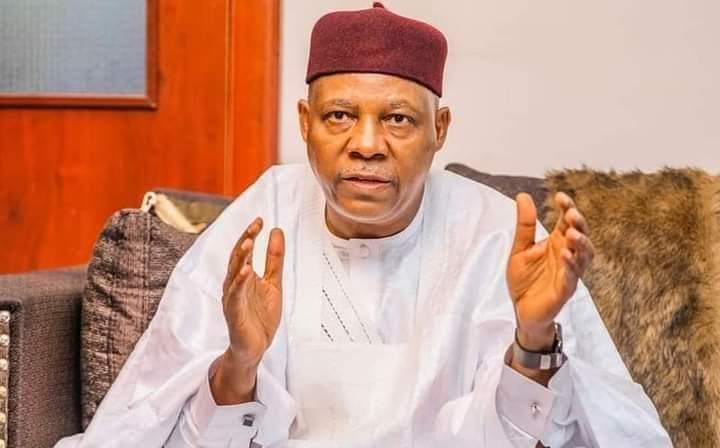Nigeria is calling on African countries to take collective action to protect the continent from environmental degradation caused by climate change.
Vice President Kassim Shettima, speaking on behalf of the Federal Government at the 2nd African Climate Forum (ACF) 2024 in Abuja on Monday, said unity was needed to halt the effects of climate change on the African continent. He added that there is.
“As we sit here today, we remind ourselves that solutions to Africa’s climate future must start by protecting ecosystems, promoting sustainable practices, and building climate-resilient communities. I would like everyone to be aware of this.
Sponsored ads
“The brunt of climate change that Africa faces can only be mitigated if we come together. The interventions we implement today will not only ensure a greener future through social innovation, but also help combat climate change.” It will be a springboard for global leadership in the country,” said Shettima, who is represented by Lucaya El-Rufai, Special Assistant to the President on National Economy. National Council on Climate Change (NEC) said:
He said the 2nd Africa Climate Forum reflects both the urgency of the moment and the opportunities ahead.
He noted that Nigeria has not only voiced its concerns and ideas at successive COPs, but also taken bold steps to translate these discussions into concrete actions.
“This work stems from our keen awareness of the impacts of climate change,” he said. “Climate change is a threat that countries across the continent are struggling to balance, and one that demands a collective response. Today’s gathering is a great reminder of where we are headed and the future we hope to shape.
“Nigeria, like many other countries, has experienced firsthand the devastating effects of climate change. We have been at the mercy of a food crisis.
“These climate realities are more than just a call to action. They are a stark reminder that none of us are immune to their consequences. That is why we have come together to take this memo. We need to compare, adopt peer learning mechanisms and agree on practical solutions moving forward.”
The Vice President said Nigeria has been proactive in tackling climate change, including through the Climate Change Act of 2021, which aims to reduce greenhouse gas emissions and achieve sustainable green growth. added.
“This legislation sets ambitious targets, including the goal of achieving net zero, and will underpin our efforts to transition to a more sustainable future. Our Energy Transition Plan (ETP) Learn more about our commitment to achieving net-zero emissions by 2060.
“In addition to this, the National Climate Change Policy (NCCP), climate debt swap and renewable energy targets will accelerate our progress through policy adjustments and financing the transition to a low-carbon economy. This is an important targeted intervention.
“But despite these interventions, none of our efforts will be optimal unless we collectively agree that climate change is not a subject of idle debate, but a clear threat to our existence.” We know that there will be no negative consequences,” Shettima said.
Prof. George Nwanwu, Executive Director of GCLBE, opened his welcome address by saying that African countries continue to suffer from the effects of climate change, such as floods in Nigeria and drought in southern Africa.
“The continent has historically had no real responsibility for the impacts of climate change,” he said, adding that “the issue of differentiated responsibility has always been on the table and will be revisited at COP 28 in 2023.” The Loss and Disaster Response Fund (FRLD) has finally become operational,” Nwangwu said.
He said climate finance is essential for Africa not only to combat climate change but also to promote sustainable development, adding that the continent is home to the world’s fastest-growing economies. Despite this, the country faces major barriers to development, including poverty and lack of funding, he added. Access to infrastructure and clean energy is limited.
“By directing climate finance towards sustainable projects, African countries can strengthen their resilience, promote green technologies and stimulate economic growth,” he said.
He noted that while international agreements set ambitious climate change targets, subnational institutions often play a central role in translating these commitments into concrete actions. did.

